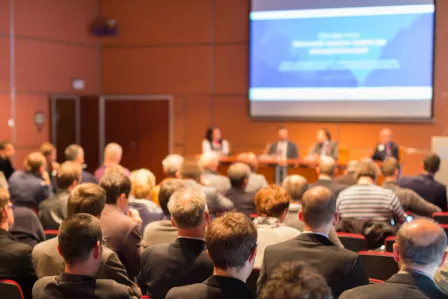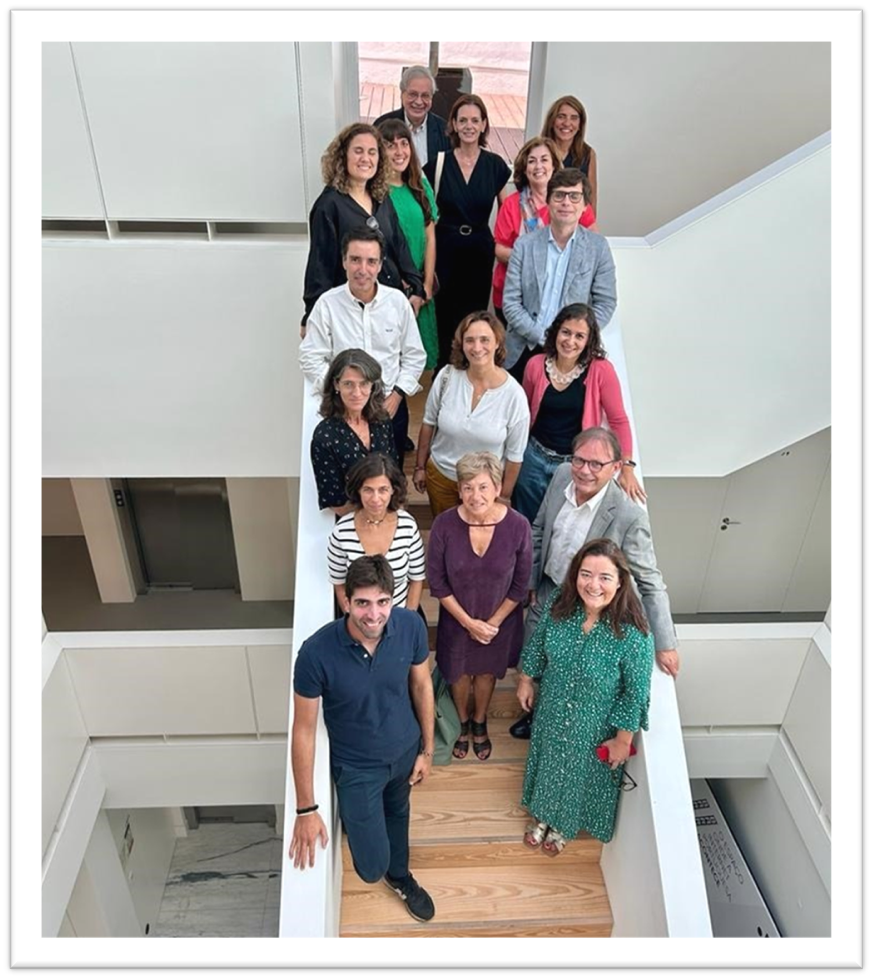GILM (the Informal Group on Media Literacy) was represented at the “Media Literacy Matters Conference” in Brussels, by Sofia Rasgado (SIC - Safer Internet Centre) and Fernanda Bonacho (ESCS - School of Communication and Media Studies) who presented the Portuguese Multistakeholder approach for Media Literacy, with a particular focus on the next steps that this informal group on media literacy is ready to take.

Two ideas in particular have been explored by its members: the Portuguese National Plan for Media Literacy, and the search for international partnerships to develop future media literacy projects with an international reach.
The Portuguese government's five-year National Plan for Media Literacy is currently being drawn up and implemented by an inter-ministerial commission, supported by an advisory board consisting of "five personalities of recognised merit with experience in the media sector or in areas related to media literacy", representatives of the Government in the areas of Education and Culture, and various public entities with competencies in the field of media literacy.
Most of the institutions that are part of GILM are included in this Advisory Board of the National Media Literacy Plan and we are very interested in the work that is being developed and in what will happen in the future media literacy landscape in Portugal.
At a time when the importance of media literacy is being recognised by decision-makers at national and international level, GILM continues to consider it imperative to fight for the promotion of a structured and effective media literacy campaign. GILM considers media literacy as one of the key skills for the education of all citizens without exception and as a tool to guarantee democratic participation and the exercise of citizenship.
Therefore, GILM and its action on media information literacy must respond to these new challenges in the communicative environment, which require new creative and critical approaches. This highlights the need for national and international partnerships to share best practices and foster collaborations across the EU that pursue media appropriation by individuals, groups, and society as a whole.
The concept of GILM being an informal group composed by real players working in the field can be extended to other communities pursuing the same goals.

September 2023, DND.PT (Lisbon). Group photo at the end of a meeting. From top down and left to the right: Pedro Braumann (RTP); Luisa Ribeiro Lopes (DNS:PT); Ana Dias (SGPCM); Bruna Afonso (ERC); Maria de Deus (LUSA); Alexandra Lorena (SGPCM); Sérgio Gomes da Silva (SGPCM); Mário Rui Miranda (RTP); Anna Ormeche (CNU); Sandra Martins (FCT); Sofia Rasgado (CNCS); Marta (ICA); Adelaide Jesus (ERC); Nicolau (PNL); Paulo Couraceiro (Obercom); Fernanda Bonacho (ESCS).
Find out more about the work of the Portuguese Safer Internet Centre, including its awareness raising, helpline, hotline and youth participation services – or find similar information for Safer Internet Centres throughout Europe.
GILM (the Informal Group on Media Literacy) was represented at the “Media Literacy Matters Conference” in Brussels, by Sofia Rasgado (SIC - Safer Internet Centre) and Fernanda Bonacho (ESCS - School of Communication and Media Studies) who presented the Portuguese Multistakeholder approach for Media Literacy, with a particular focus on the next steps that this informal group on media literacy is ready to take.

Two ideas in particular have been explored by its members: the Portuguese National Plan for Media Literacy, and the search for international partnerships to develop future media literacy projects with an international reach.
The Portuguese government's five-year National Plan for Media Literacy is currently being drawn up and implemented by an inter-ministerial commission, supported by an advisory board consisting of "five personalities of recognised merit with experience in the media sector or in areas related to media literacy", representatives of the Government in the areas of Education and Culture, and various public entities with competencies in the field of media literacy.
Most of the institutions that are part of GILM are included in this Advisory Board of the National Media Literacy Plan and we are very interested in the work that is being developed and in what will happen in the future media literacy landscape in Portugal.
At a time when the importance of media literacy is being recognised by decision-makers at national and international level, GILM continues to consider it imperative to fight for the promotion of a structured and effective media literacy campaign. GILM considers media literacy as one of the key skills for the education of all citizens without exception and as a tool to guarantee democratic participation and the exercise of citizenship.
Therefore, GILM and its action on media information literacy must respond to these new challenges in the communicative environment, which require new creative and critical approaches. This highlights the need for national and international partnerships to share best practices and foster collaborations across the EU that pursue media appropriation by individuals, groups, and society as a whole.
The concept of GILM being an informal group composed by real players working in the field can be extended to other communities pursuing the same goals.

September 2023, DND.PT (Lisbon). Group photo at the end of a meeting. From top down and left to the right: Pedro Braumann (RTP); Luisa Ribeiro Lopes (DNS:PT); Ana Dias (SGPCM); Bruna Afonso (ERC); Maria de Deus (LUSA); Alexandra Lorena (SGPCM); Sérgio Gomes da Silva (SGPCM); Mário Rui Miranda (RTP); Anna Ormeche (CNU); Sandra Martins (FCT); Sofia Rasgado (CNCS); Marta (ICA); Adelaide Jesus (ERC); Nicolau (PNL); Paulo Couraceiro (Obercom); Fernanda Bonacho (ESCS).
Find out more about the work of the Portuguese Safer Internet Centre, including its awareness raising, helpline, hotline and youth participation services – or find similar information for Safer Internet Centres throughout Europe.
- media literacy media education
Related content
- < Previous article
- Next article >











